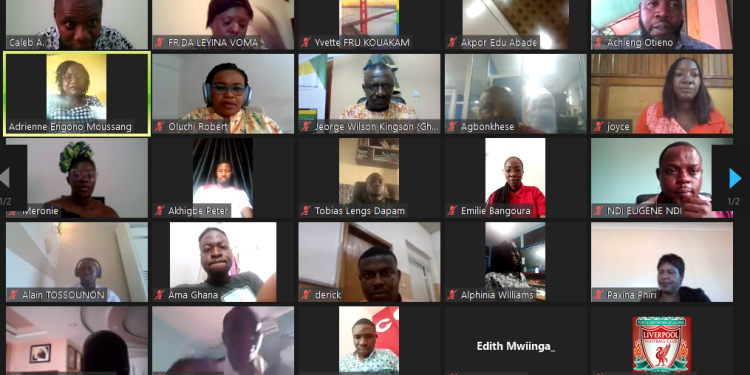In commemoration of World No Tobacco Day 2024, journalists across Africa have been urged to improve the quality of tobacco control reports as a strategy to protect children from tobacco use and addiction.
The call was made during a virtual discussion organized by the Renevlyn Development Initiative (RDI) in conjunction with Vital Voices for Africa (VVA) and Being Africa. Over 20 African countries, including Nigeria, Kenya, Zambia, Ghana, Togo and Cameroon, were represented at the event themed “Protecting Children from Tobacco Industry Interference.”
Philip Jakpor, Executive Director of RDI, revealed startling research showing one-third of youth tobacco experimentation stems from industry marketing and advertising targeted at young people.

“Worldwide, 78% of youth aged 13-15 report regular exposure to tobacco advertising, promotion and sponsorship,” he stated.
Oluchi Joy Robert, a Nigerian tobacco control advocate, lamented how major tobacco corporations view the country’s large youth population and expanding economy as a lucrative market.
Mrs Robert stated, “In Nigeria, the tobacco companies are aggressively recruiting young lungs to replace dying patrons and maintain market dominance through attractive flavoured products easily accessible to children.”
The Zambian experience echoed similar concerns, with Prixina Phiri from the Centre for Primary Care Research highlighting how children access tobacco products from schools and shopping malls due to lax regulations.
Achieng Otieno from Being Africa emphasized the intersection between the WHO Framework Convention on Tobacco Control (FCTC) and the Convention on the Rights of the Child, both aimed at protecting children from tobacco’s devastating impacts.
Caleb Ayong of VVA stressed that 14 of the 17 Sustainable Development Goals will not be achieved unless the tobacco industry is reined in, as tobacco use directly contradicts goals like universal health coverage and disease prevention.

Journalists were urged to go beyond arm’s length reporting by investigating tobacco farms, factories, entertainment venues, hospitals, schools and social media platforms. They were also advised to tap into credible sources like medical practitioners, teachers, child victims and their families.

